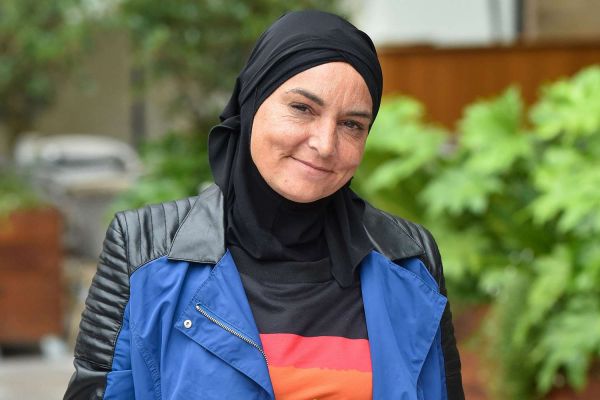Irish performer and campaigner Sinéad O’Connor has died at the age of 56. Her relatives broke the news, saying “her family and friends are devastated,” with “great sadness.” The public is unaware of the death’s cause.
She became well-known all over the world thanks to the 1990 single Nothing Compares 2 U, which peaked at number one.
Irish Prime Minister Leo Varadkar said that her music was “beloved around the world” and that her brilliance was “unmatched.”
President of Ireland Michael D. Higgins lauded O’Connor for her “authenticity” and “beautiful, distinctive voice.”
In his words, “What Ireland has lost at such a young age is one of our best and most gifted composers, songwriters, and performers of the previous several decades, one who had a special skill and amazing connection with her audience, all of whom had such love and care for her.
The actress had a challenging life. She was born Sinead Marie Bernadette O’Connor on December 1966 in Glenageary, County Dublin.
When she was a teenager, she was taken to Dublin’s An Grianan Training Centre, which was once one of the notorious Magdalene laundries built to confine young girls deemed promiscuous.
O’Connor’s musical career was launched when a nun purchased her an instrument and put her in touch with a music instructor.
Her critically praised debut album, The Lion And The Cobra, was released in 1987 and reached the US and UK top 40.
Her subsequent album, I Do Not Want What I Haven’t Got, contained the song Nothing Compares 2 U. Prince wrote the song, which peaked at number one in the US and the UK as well as other countries.
O’Connor, who was vocal about her social and political opinions, put out 10 studio albums between 1987 and 2014.
She was chosen Artist of the Year by Rolling Stone in 1991, and she also took home the Brit Award for best international female solo artist.
The following year, when appearing as a guest artist on the American television program Saturday Night Live, she tore up a picture of Pope John Paul II, which turned out to be one of the most important moments of her career.
She looked to the camera after an acapella performance of Bob Marley’s War and spoke the phrase “fight the real enemy” in opposition to child sex abuse in the Catholic Church.
Her acts led to NBC banning her for life and protests around the country, including the burning of her records in Times Square, New York.
“I did it with no regrets. In a 2021 interview with the New York Times, she praised it as being wonderful.
2014 saw the release of O’Connor’s most recent studio album, I’m Not Bossy, I’m The Boss.
After converting to Islam in 2018, the Dublin singer-songwriter changed her name to Shuhada’ Sadaqat but kept using her given name when performing. She released a book titled Rememberings in 2021.
Her 17-year-old son Shane was reported missing two days before his body was found in January 2022.
After his demise, she penned a message on social media stating that he had “decided to end his earthly struggle” and requesting that “no one follow his example.”
Later, owing to her “continuing grief” over her son’s passing, the singer postponed all live performances for the rest of 2022.
O’Connor referred to Shane in one of her last tweets as “the love of my life, the lamp of my soul, we were one soul in two halves.”
One of the last people to talk with O’Connor before she passed away was Belfast-based filmmaker Kathryn Ferguson, who was “devastated” by the news.
This Saturday will see the publication of Ferguson’s documentary about O’Connor, Nothing Compares.
“In my opinion, our movie is a love letter to Sinéad. It was developed over a long length of time,” she told Front Row on BBC Radio 4. She influenced me as a little girl growing up in Ireland, and I was the one who created her.
She is among the most innovative and exceptional artists we have ever had. And to have her was an enormous blessing for us.
After the singer’s passing was reported on Wednesday night, social media was inundated with condolences.
O’Connor, according to vocalist Alison Moyet, had an “astonishing presence” and a voice that “cracked stone by increment.”
“That card was never exchanged, yet she was as gorgeous as any local woman. I loved this quality in her. Iconoclast.”
Irish comedian Dara O’Briain called her passing “extremely awful news. Poor animal. I hope she was aware of the affection I have for her.
Sinead “embodied the anarchist ethos in its purest form,” according to Tim Burgess of the Charlatans. She refused to give in, which made things more difficult for her. “We hope she has found peace.”
O’Connor’s passing was described as “heartbreaking” by Irish novelist Marian Keyes.
“What a struggle she had. Sinéad is helpless beyond words. You brave, beautiful, magnificent, and one-of-a-kind marvel, rest in peace.
Journalist Caitlin Moran stated: “She was brave and decades ahead of her time. King, rest in glory.
Irish filmmaker Mark Cousins continued,
“Sinéad O’Connor represented our Irish untamed side. a huge amount of our imagined existence.
In a message to O’Connor’s family, singer Bryan Adams said: “RIP Sinéad O’Connor, I loved working with you making photos, doing gigs in Ireland together, and having chats.”
Conor McGregor, an Irish mixed martial artist, tweeted,
“Ireland has lost a legendary vocalist and one of our ultimate finest. O’Connor once sang into the ring for a UFC battle in Las Vegas. Additionally, I lost a friend.”
Sinéad O’Connor was the best singer ever. No-one. Every note she played screamed with unrestrained intensity. She turned Prince’s corny Nothing Compares 2 U into a ferocious lament for pain and loss.
Sinead shared her bed with these emotions. She came from a difficult family. Her mother, whom she claimed had molested her, died in a car accident in 1985, and her parents separated when she was eight years old.
She was detained at the Magdalene Asylum as a teenager after being caught shoplifting, which she described as a “prison” where “girls cried every day.”
Her music was infused with all of these tragic events as well as those to come. I Am Stretched On Your Grave, from her second album, is a heartbreakingly beautiful song about love and sadness, while Three Babies, also from that album, lays bare her agony after several miscarriages.
She also adopted other people’s pain. Female genital mutilation was alluded to in her debut song, Mandinka. Two years before the Los Angeles riots made police brutality against black males a hot topic, Black Boys On Mopeds, a 1990 film, addressed the problem.
She was a divisive character, yet she always protested with empathy. She wasn’t thinking about her personal image when she tore up a picture of the Pope on American television; she was thinking about abuse victims.
Her subsequent CDs included tributes to community and peace as well as performances by her children. She dedicated her classic album, which she won earlier this year in Ireland, to the nation’s refugee population.
Nothing matches 2 The exception was U, a song that made her famous against her will. She considered herself to be a protest singer who sought to be heard. That’s how we ought to remember her.
Also Read: Who Is Katie Leung Currently Dating? Her Love Life





